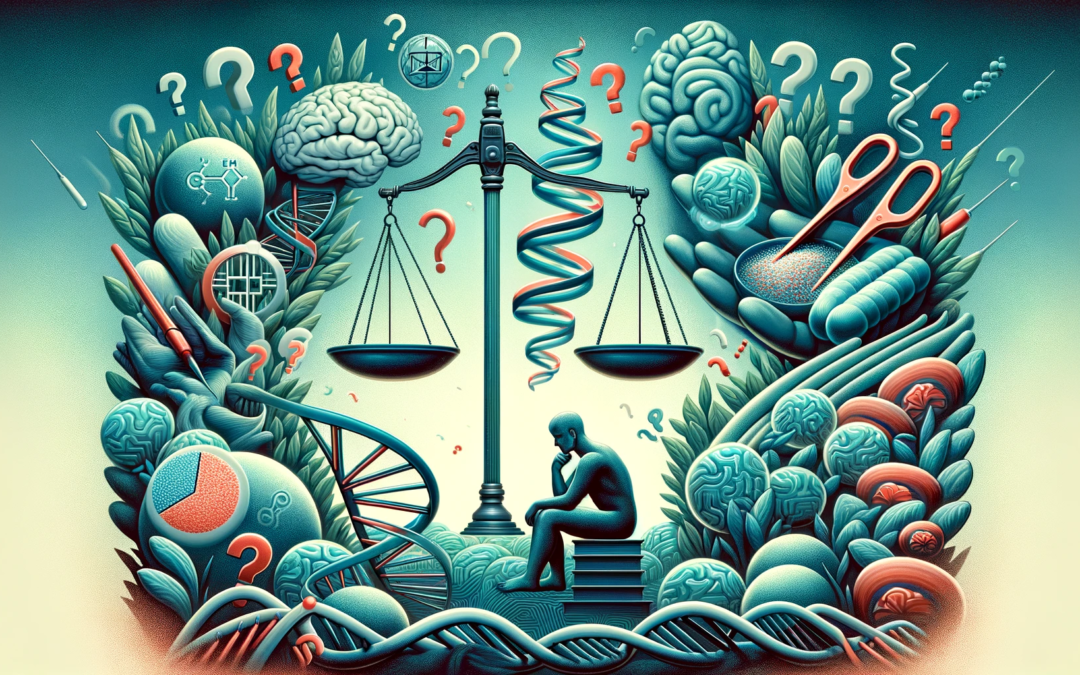Welcome back to the final installment of our series on mRNA technology. In the previous posts, we’ve explored the exciting advancements in mRNA technology and its potential implications. Now, it’s time to delve into the ethical considerations surrounding genetic modification in the age of advanced mRNA technology.
Understanding Genetic Modification: Basics of Genetic Editing
Before we dive into the ethical debates, let’s start with the basics. Genetic modification involves altering the DNA of an organism, and there are various techniques to achieve this, including the well-known CRISPR. With the advent of mRNA technology, we have a new tool in our genetic editing arsenal.
It’s important to differentiate between somatic and germline modifications. Somatic modifications target specific cells in an individual, whereas germline modifications alter the genetic material that can be passed down to future generations.
mRNA Technology’s Potential in Genetic Editing
Now, let’s explore the potential role of mRNA technology in genetic modification. This technology has shown promise in medical treatments, such as developing vaccines and therapies for genetic diseases. The ability to deliver mRNA molecules to specific cells opens up new possibilities for targeted genetic modifications.
Ethical Considerations: Potential Benefits vs. Risks
As with any emerging technology, genetic modification raises ethical concerns. On one hand, there are potential benefits, such as the potential to cure genetic diseases and improve the quality of life for many individuals. On the other hand, there are risks, including unintended consequences and the potential for playing a role in human evolution.
It’s crucial to carefully weigh these benefits and risks and consider the long-term implications of genetic editing. After all, we’re tinkering with the very building blocks of life.
Consent and Autonomy
One of the most significant ethical dilemmas in genetic modification revolves around consent. When it comes to germline editing, the changes made will affect future generations who cannot provide their consent. This raises profound ethical questions about the autonomy of individuals and the responsibility we have towards future generations.
Equity and Accessibility
Another important consideration is the potential divide between those who can afford genetic modifications and those who cannot. Will genetic enhancements create a wider gap between the haves and have-nots? We must address the issue of equity and accessibility to ensure that genetic modifications do not exacerbate existing social inequalities.
Global Perspectives and Governance
Genetic modification is a global issue, and different countries have varying perspectives and regulatory approaches. Some nations have strict regulations in place, while others have more permissive attitudes towards genetic editing. It’s essential to examine the global response and existing governance structures to understand the broader context of genetic modification.
Future of Genetic Modification Governance
As advancements in genetic editing technologies continue at a rapid pace, governance must evolve accordingly. We need robust frameworks that balance scientific progress with ethical considerations. It’s crucial to foster ongoing dialogue and collaboration between scientists, policymakers, and the public to ensure responsible and ethical innovation in the field of genetic modification.
Conclusion
The ethical challenges surrounding genetic modification in the age of mRNA technology are complex and multifaceted. While the potential benefits are undeniable, we must proceed with caution and consider the long-term consequences. Responsible and ethical approaches are essential to navigate this new terrain and ensure that genetic modification serves the greater good without compromising our values.
Let’s continue the dialogue, engage in thoughtful debate, and work together to shape a future where genetic modification is guided by ethics and a deep sense of responsibility.
Meta Description: Explore the ethical considerations surrounding genetic modification in the age of mRNA technology. Delve into the potential benefits, risks, consent issues, and global governance perspectives in this thought-provoking blog post.










